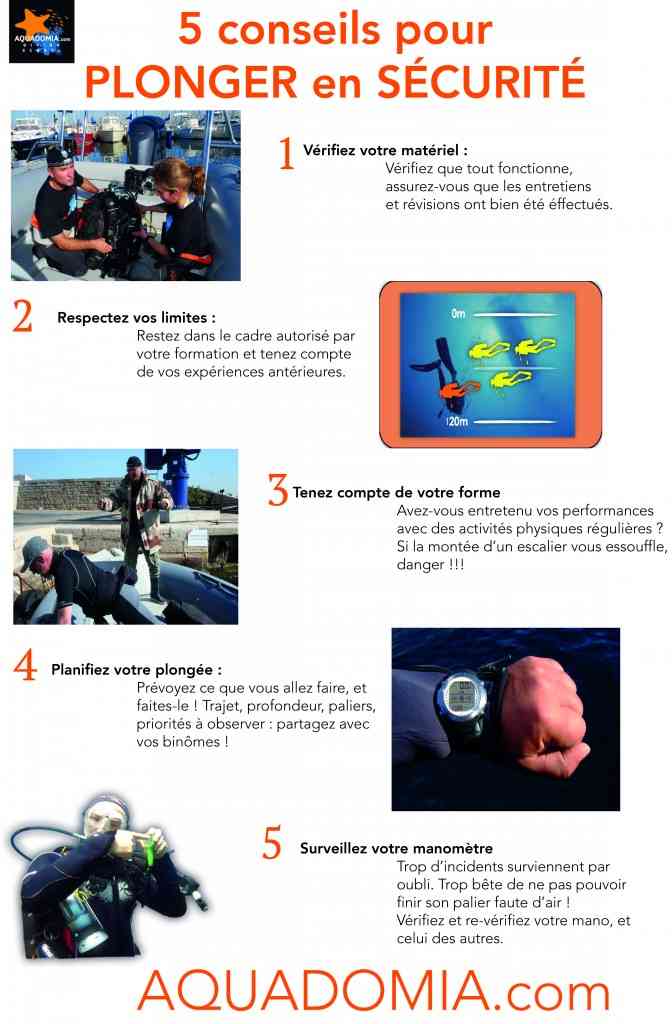5 Tips for safe diving
1-Check your diving equipment
The equipment is reliable and ensures your safety, but requires a minimum of maintenance to continue to ensure its service properly. A regulator left in the sand and badly rinsed during the last dive and it is the Guaranteed Cup! A seal that leaked slightly during the last use can only leak more during the next, a battery of computer that has not served for a while present a strong chance to be discharged, your combination probably did not follow the evolution of Your profile... If manufacturers are advocating annual maintenance, follow this schedule for your safety and that of others. Remember to check all this well before your dive trip will bring you serenity, comfort and safety for your dives!
2-Respect your limits
Dive reasonable and do not dive deeper or in more demanding conditions than you have ever experienced without a reinforced framing. Don't overestimate yourself! It is always tempting to keep face and do this deep dive on wreck that is 15 meters deeper than the last you have done... but without suitable framing such a dive can turn to nightmare. It is so nice to tell a successful dive made safe. Your certification card is issued without a fixed amount of time, but you should regularly consider re-updating your knowledge and skills with a qualified mentor.
3 – Consider your shape
Whatever you say, diving is a sport. The practice of your leisure requires a minimum of physical performance, and exposure to a pressurized environment with oral respiration via material and new physiological stresses requires resistance that a tired body or Overweighted can hardly offer. A diver who respects himself maintains his hygiene of life for example with swimming, running or walking, cycling, treats his food and avoids alcohol and tobacco. No need to stay on the perpetual regime, but rather to apply the way of life of the "living good" rather than that caricature of the "good living" adept of some addictions.
4-Plan your dive
Planning what you're going to do is important if you want to enjoy it! The best way to miss a dive is to find yourself in the water without having concerted on the rhythm, the journey, the role of each, the depth... improvisation, which is not shared, rarely gives very good results. Before you go listen to the description of the site and the advice given to you and especially familiarize yourself with your partners and their materials, the way they communicate and the methods of decompression they use. This little time spent on the surface to plan, it will be a bonus in long moments of serenity and relaxation at the bottom!
5 – Monitor your manometer
It seems obvious but I do not know a novice not an expert who has not been trapped by an unusual consumption, an unexpected leakage, an oversight... When you know that the most stupid dive accident is drowning for lack of air or the accident of decompression due to the lack of air to finish its landing, one controls his manometer regularly, and that of others!
Whether you want to spend your Diving Level 1 or progress towards the Level 2The Level 3The Dive TEK or the Monitoring, these 5 basic tips are valid to take full advantage of your diving adventures.

